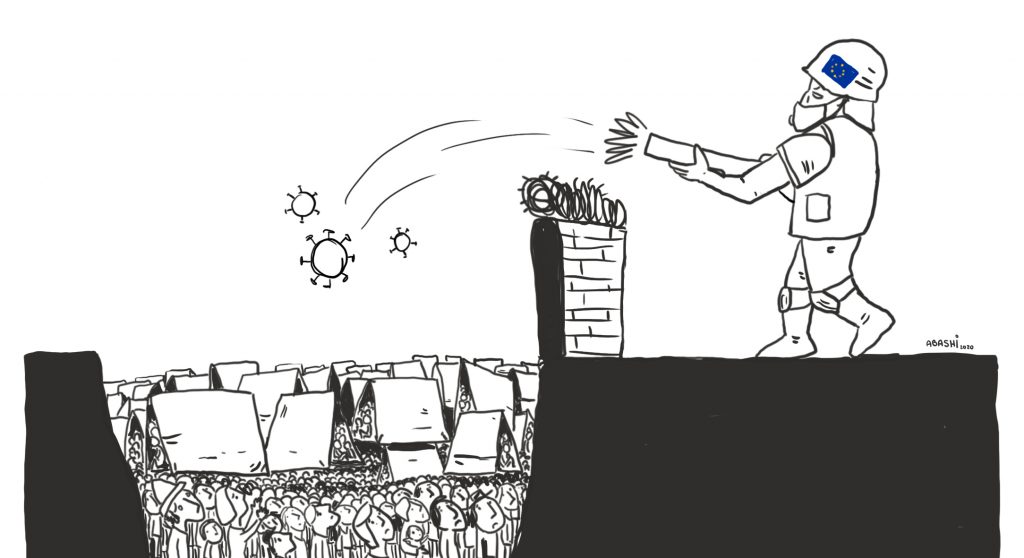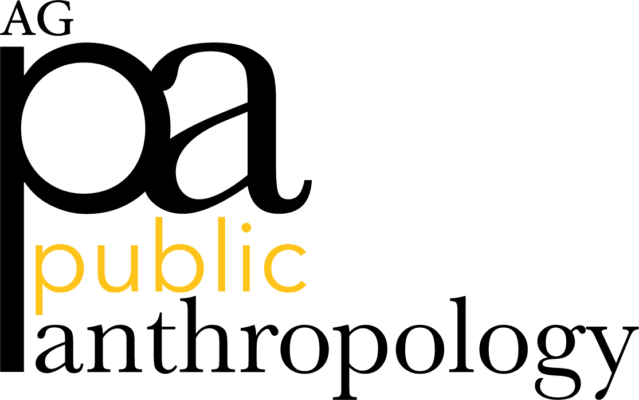Joint public statement about the situation at the EU external borders
by the Working Groups Migration and Public Anthropology and the Regional Working Group Europe of the German Anthropological Association (GAA)
While the COVID-19 pandemic draws public and media attention to the emergence of yet another crisis, the critical situation of migrants confined to Greek refugee camps has become nothing but a murmur on the sidelines of public debate. Due to the suspension of the EU-Turkey deal and the opening of the borders on behalf of the Turkish government, the dramatic situation in these camps has further exacerbated. The COVID-19 pandemic requires us to maintain physical distance to others, yet this does not keep us from insisting: the fate of migrants at the EU’s external borders and inside its refugee camps affects us all. Showing solidarity with them and pressing for a political solution of the unbearable living conditions in European refugee camps continues to be of absolute necessity.

These conditions were produced through European political actions. Firing at refugees, violent pushbacks by border police, self-organized vigilante groups who attack refugees and their supporters, in addition to the imprisonment of those who successfully cross borders, by no means constitute unpredictable humanitarian catastrophes. They are the results of long-standing practices of border security. The refusal of some EU member states to grant asylum to any refugee at all further adds to this grim situation.
Discourses underlining the necessity to ‘seal off’ the EU, or conjuring the projected dangers of ‘illegal migration’ serve as a means to legitimize measures which undermine and violate existing legal frameworks. For the purpose of ‘deterrence’, the deaths of migrants in the Mediterranean Sea are taken to be collateral damage. The EU member states have agreed on a deal with Turkey that is highly questionable in its relation to the rule of law and human rights and it instrumentalizes refugees as political leverage.
The EU capitalizes on the externalization of migration control and readily accepts the fact that third countries continuously and systematically violate human rights of migrants when implementing their border regimes. Instead of guaranteeing transparent means of migration, the EU isolates people in inhumane conditions in refugee camps and other institutions of refugee accommodation within and outside its borders. On the Aegean Islands, this has led to the continuation of an alleged state of transition, which is not only unbearable for people confined to the overfilled camps but has also generated conflicts between refugees and the local population.
We demand political action for a life in common in European migration societies that prioritizes the protection of the lives of all humans. We call on the states represented in the European Council to take on their responsibility and to act immediately. We join those demanding the evacuation of refugees in the hotspots on the Aegean islands. The spread of COVID-19 has to be met with targeted measures in order to protect this part of the European population that is left without access to their most substantial rights. Now.
As members of the Working Groups Migration and Public Anthropology of the German Anthropological Association (GAA), we openly position ourselves against the currently occurring human rights violations at the EU’s external borders. People have to be able to cross these borders safely, with their human rights duly recognized and guaranteed. Numerous municipalities in Germany and Austria have announced their willingness to shelter those seeking protection. The national governments have to cease ignoring these demands. Rather, they have to implement long-term policies that go beyond short-term emergency procedures, in order to avoid restrictive backlashes such as those that followed the summer of migration of 2015. The approaches towards flight and migration adopted by the European Union and the states represented in the European Council can no longer be sustained. Instead, the right to migration has to be recognized and granted as a right independent of national belonging; therefore, a European mechanism for migration needs to be established. Finally, the voices of refugees, NGOs and migration scholars have to be included in a constructive and necessary dialogue about the future of European migration societies.
10th April 2020, signed by:
Working Group Migration, Working Group Public Anthropology, Regional Working Group Europe, and the Executive Board of the German Anthropological Association (GAA, in German: DGSKA)
